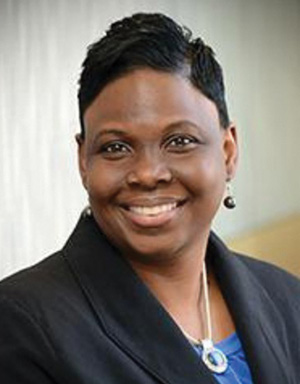
Underrepresented Communities to Benefit From New Online Cancer Education Program
Our new interdisciplinary graduate certificate program trains people to provide and facilitate solutions and interventions for cancer patients in underrepresented communities.
The College of Education and the Cancer Center at Illinois collaborated on an online Graduate Certificate program to train people who aspire to be cancer researchers, healthcare providers, and community stakeholders in developing and implementing cancer management solutions and interventions.
The Cancer Education and Management in Underrepresented & Diverse Communities Graduate Certificate program prepares participants to design and conduct studies to measure the change in response to cancer management interventions.
Wenhao David Huang, professor and associate head of the Department of Education Policy, Organization and Leadership (EPOL), and Margaret Browne Huntt, assistant director for strategic research initiatives and chief diversity officer for the Cancer Center at Illinois, speak about the importance and potential impact of the program.
 “Disparity in cancer research, treatment, and rates, particularly in underrepresented communities, is a challenging reality that demands timely actions. These actions should be interdisciplinary in order to be effective and sustainable. In looking at the current offerings, we realized that there was a gap that we could fill through a collaborative partnership with the Cancer Center at Illinois and the College of Education.”
“Disparity in cancer research, treatment, and rates, particularly in underrepresented communities, is a challenging reality that demands timely actions. These actions should be interdisciplinary in order to be effective and sustainable. In looking at the current offerings, we realized that there was a gap that we could fill through a collaborative partnership with the Cancer Center at Illinois and the College of Education.”
 “Education is a change agent that has been somewhat neglected in the context of health education for adult learners everywhere. This lack of attention and resource investment is leading to many disparities and inequities in current healthcare systems, particularly in underrepresented and underserved communities. The need for this program is twofold. First, due to its online format, the program will respond to the need for learners around the world to develop knowledge, skills, and abilities to empower underrepresented communities with advanced cancer care and management solutions. Second, the program will create a platform to address the need of advocating for additional health education resources for underrepresented communities around the globe.”
“Education is a change agent that has been somewhat neglected in the context of health education for adult learners everywhere. This lack of attention and resource investment is leading to many disparities and inequities in current healthcare systems, particularly in underrepresented and underserved communities. The need for this program is twofold. First, due to its online format, the program will respond to the need for learners around the world to develop knowledge, skills, and abilities to empower underrepresented communities with advanced cancer care and management solutions. Second, the program will create a platform to address the need of advocating for additional health education resources for underrepresented communities around the globe.”